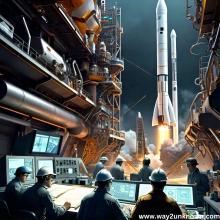Rocket science

Rocket science, often synonymous with complex and challenging engineering, represents the cutting-edge of scientific achievement. At its core, rocket science involves the design and development of rockets and spacecraft, which requires a profound understanding of physics, engineering, and mathematics. The field is known for its perilous nature, as even minor miscalculations can lead to catastrophic failures. Thus, engineers and scientists in this domain must be exceptionally meticulous and precise, making their work both fascinating and critical.
To master rocket science, professionals must seize every opportunity to apply their knowledge in practical scenarios. This involves rigorous testing, simulations, and real-world applications to ensure that rockets can withstand the intense conditions of space travel. The ability to create concise yet comprehensive designs and solutions is crucial. Engineers must translate complex theoretical concepts into actionable plans, ensuring that every component of the rocket functions correctly and safely.
Rocket science has led to significant milestones in space exploration, including satellite launches, space missions, and interplanetary exploration. The challenges faced in this field push the boundaries of what is possible, requiring a blend of innovation, precision, and resilience. Despite the perilous risks involved, the rewards of advancing human understanding and capabilities are immense. As technology evolves, rocket science continues to inspire future generations and drive progress in both space exploration and engineering.